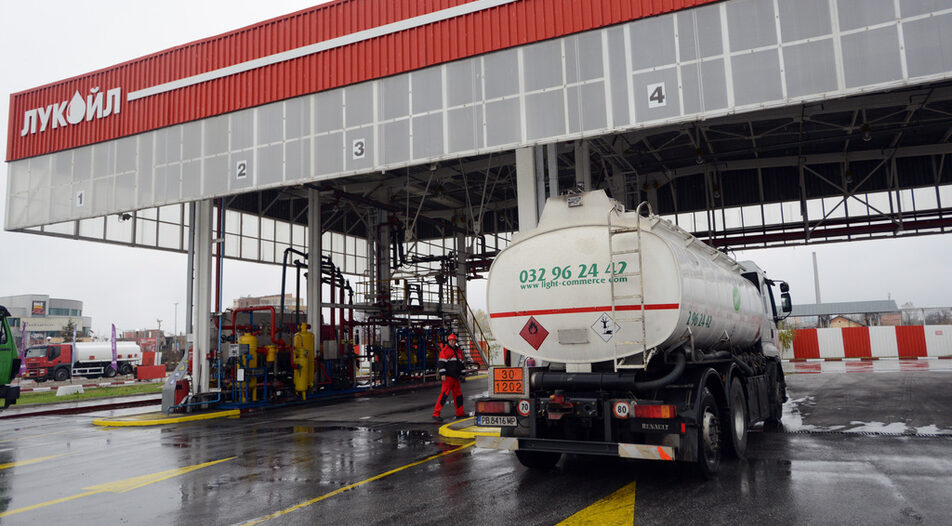"Bulgaria, the Country that Secretly Saved Ukraine". This article recently published in the German newspaper Die Welt that quoted former Bulgarian prime minister Kiril Petkov and ex-finance minister Asen Vasilev uncovered a public secret: since the start of the Russian war on Ukraine, Bulgaria has supplied arms and fuel to the invaded country - openly or covertly. The publication unleashed a storm in Bulgaria because of the pro-Russian bias of some politicians, as well as in Russia, as the main producer of motor fuels in Bulgaria is Lukoil's refinery in the city of Burgas.
Business logic
The export of fuels from Bulgaria to Ukraine however has a solid business logic. National Statistical Institute (NSI) data show that since the start of the war fuel exports have risen substantially, reaching record volumes. Many large Bulgarian warehouse keepers saw it as an opportunity for better margins after the pricing policy of Lukoil in Bulgaria made good profits on the local market difficult.
Supplies to Ukraine actually received Brussels' blessing, too, as Bulgaria was given a two-year derogation from the ban on Russian crude oil imports that became effective in the EU on December 5, 2022. The permission for Bulgarian fuel exports to Ukraine was also noted in the ninth package of sanctions against Russia.
Bulgaria had record high exports of fuels to Ukraine last year: for the first 11 months of 2022 they amounted to 1.479 billion levs (nearly 760 million euro), NSI data show. In terms of volume, Bulgaria exported 645,000 tonnes of fuels, which was a manyfold increase on previous years. Diesel accounted for more than 80% of the fuel exports to Ukraine: 531,000 tonnes, or more than 400 times the volume for the whole year 2021.
How it works
The exports of fuels to Ukraine are not made by Lukoil Bulgaria but by other Bulgarian companies - and that has been clear since the beginning of the war. The Russian parent company, Lukoil PJSC, has an international trading arm, Litasko, which has two divisions: in Switzerland, for business in Europe, and in Dubai, for deliveries to third countries. Until the beginning of this year the refinery in Burgas operated on a tolling basis for companies of the Russian structure and was paid fees for processing.
The refinery, Lukoil Neftochim Burgas, does not export fuels. Bulgarian exporters have contracts with retailer and wholesaler Lukoil Bulgaria, which buys fuels from Lukoil Neftochim Burgas. Soon after the war started, Bulgarian traders said there were many enquiries for fuel purchases from Ukrainian clients. And that was a good business opportunity for the large Bulgarian retailers and warehouse keepers.
There are about a dozen big players with bases near the big cities in Bulgaria. The largest exporter is Insa Oil of Georgi Samuilov, who imports Russian fuel with tankers and processes it in his refinery in the village of Belozem near the city of Plovdiv. In an interview for the Capital Weekly he recently said he held 25% of the Russian import market and exported 30 to 40% of the refinery's output to Ukraine.
After the EU imposed sanctions on Russia, large international traders turned away from Russian fuels. But as shortage in Ukraine loomed, there appeared smaller traders - in Switzerland, London, Estonia, Latvia, Hong Kong - who industry sources say are Ukrainian.
Though more rarely, Bulgarian warehouse keepers receive enquiries from end customers, too. After the oil refining industry in Ukraine was hit severely by Russian bombardments, large farmers, fuel traders and construction companies started importing fuels themselves.
The fuels originating in Bulgaria are transported mainly by road and rail. Their main competitors are the large deliveries from Greece and Turkey, which are transported by ship through the Romanian Black Sea port of Constanta.
"Bulgaria, the Country that Secretly Saved Ukraine". This article recently published in the German newspaper Die Welt that quoted former Bulgarian prime minister Kiril Petkov and ex-finance minister Asen Vasilev uncovered a public secret: since the start of the Russian war on Ukraine, Bulgaria has supplied arms and fuel to the invaded country - openly or covertly. The publication unleashed a storm in Bulgaria because of the pro-Russian bias of some politicians, as well as in Russia, as the main producer of motor fuels in Bulgaria is Lukoil's refinery in the city of Burgas.












